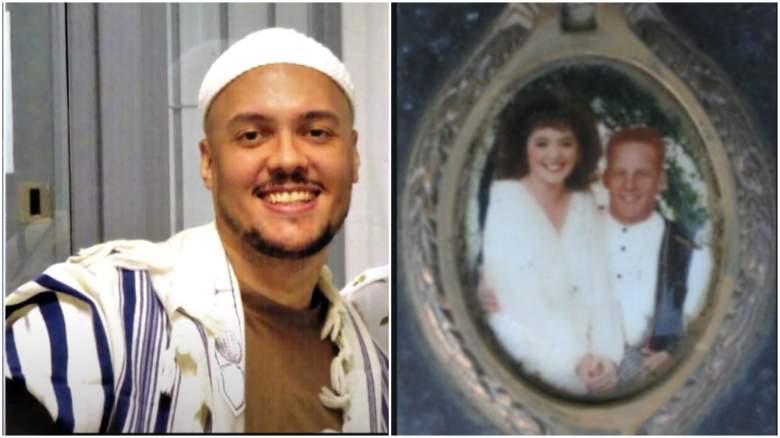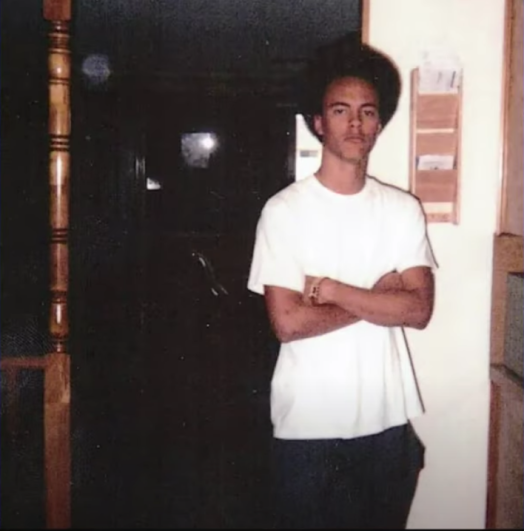
Christopher Vialva is set to die by federal execution on Thursday, September 24 at 6 p.m. in Indiana’s Terre Haute federal prison after being convicted of the 1999 murders of a couple in Killeen, Texas. Vialva, now 40, is “the first Black inmate scheduled to die this year as part of the Trump administration’s resumption of federal executions,” according to The Associated Press.
Vialva was 19-years-old when he and a few other teens from a local gang hatched a plan to rob and carjack someone. It was June 21, 1999, when the boys went driving around the city of Killeen, Texas, to look for a victim. After combing parking lots of various stores, Vialva along with 18-year-old Brandon Bernard, Christopher Lewis, Tony Sparks and Terry Brown, who were all 15 to 16 years old, found Todd and Stacie Bagley at a convenience store where they had stopped to use the payphone, according to case information on Find Law.
The Bagleys were deeply religious youth ministers visiting from Iowa to see friends and attend a church revival, according to The Associated Press. Lewis and Sparks approached Todd Bagley, 26, to ask for a ride. He agreed to give the boys, including Vialva, a ride to their “uncle’s house,” according to court documents.
Once they were on the road, Vialva and Sparks held the couple at gunpoint, robbed them, demanded their PIN for their ATM card and put them in the trunk while they drove around trying to get money from ATMs, according to the case information. But the Bagleys only had about $100 in their account. The gang members bought food at Wendy’s and stopped to buy cigarettes and cigars. They tried to pawn Stacie Bagley’s wedding ring, court documents revealed.
After a few hours, Vialva, Sparks and Lewis met back up with Bernard and Brown. Vialva said they needed to kill the Bagleys because they’d seen his face. But the Bagleys had been talking through the backseat to Sparks and Lewis about their faith and told them, “God’s blessings were available to anyone,” according to court documents. The couple tried to persuade the younger teens to let them go.
It was starting to work, on Sparks at least. According to case documents, he told Vialva he didn’t want to go through with the crime and said he needed to be home by his 8 p.m. curfew. The group dropped him off at home along with a bag of the Bagleys’ jewelry to be pawned the next day. Then, the remaining four teens took the young couple to where they planned to kill them and burn their car.
Bernard and Brown bought lighter fluid, and, according to court records, the teens drove the Bagleys’ vehicle and Bernard’s car separately to an isolated spot on a small hill on the Fort Hood Military Reservation, which was federal land. Bernard and Brown doused the inside of the car with lighter fluid while the Bagleys could be heard singing and praying in the trunk, according to the case files.
Even though Vialva said he needed to kill the Bagleys because they’d seen his face, according to the case reports he put on a mask before opening the trunk and shooting Todd Bagley in the head, killing him. He then shot Stacie Bagley in the face.
Autopsy findings showed that Stacie Bagley did not die from the gunshot wound but rather from smoke inhalation after they lit the car on fire, according to case files. Brown told investigators the last words Stacie Bagley said were “Jesus loves you” and “Jesus, take care of us.'” She was 28 years old.
But the teens didn’t get far after they set the car on fire. They ran to Bernard’s car, which was parked on the hill, but found the car had slid into a muddy ditch and was stuck. Police were called when someone reported the car fire and they and showed up as the boys were trying to get the car out of the ditch. According to the case file, firefighters found the Bagleys’ bodies in the trunk, and Vialva, Lewis, Bernard and Brown were arrested without ever leaving the crime scene.
Some Say Vialva’s Death Sentence Is Unjust Because He Was 19 at the Time of the Killings

YouTube Christopher Vialva was sentenced to death for killing Stacie and Todd Bagley in 1999 when he was 19 years old.
Both Vialva and Bernard received death sentences for the murders of the Bagleys.
Vialva will be the second federal inmate put to death this week and the 7th to be executed since July following a 17-year period in which the federal government paused executions. It will also be the first time in 70 years that a federal inmate will be put to death for a crime they committed as a teen.
However, the states have put 22 people to death for crimes they committed as teenagers from 1976 to 2005, according to the Death Penalty Information Center. In 2005 the Supreme Court ruled against the death penalty being sought in cases where a person was under the age of 18 when they committed a killing. Of course, that still wouldn’t apply to Vialva.
According to Vialva’s attorney, Susan M. Otto, who filed a Habeus Corpus petition to appeal the death sentence on August 10, “Mr. Vialva’s mental age was several years younger than his chronological age.”
Otto said he suffered from abuse and a difficult childhood but none of that was taken into account during his trial. She said in the appeal, “The jury that determined Mr. Vialva’s guilt and sentenced him to die never heard the wealth of evidence that illuminated his vulnerabilities and provided context to the events.”
Dr. Jason Chein, a psychology professor at Temple University, published an article for Bloomberg News on September 17 arguing that capital punishment should be off the table for teens who commit crimes because in the 20 years since Vialva killed the Bagleys, much has been learned about the adolescent brain due to more advanced brain-imaging technology.
Chein wrote, “These technologies have helped confirm that there are structural and biological explanations for what any parent knows: teenagers often make ill-conceived decisions and take serious risks, especially when they are with peers.”
But planning to rob people at gunpoint, drive around with them in the trunk for hours before shooting them in the head and attempting to burn them is a lot different than having unprotected sex, trying drugs or having parties during a pandemic, which are more standard behaviors related to the development of the teen brain. Still, according to Chein, “… Deficits in the control of emotions and behavior are found to be further heightened in teenagers who have suffered from some form of abuse.”
Vialva shared his regrets and his newfound spirituality in a video posted by the American Civil Liberties Union on September 21, in which he makes a plea for Americans to “rethink the federal death penalty.”
He said, “I am not making this plea as an innocent man but I am a changed and redeemed man. I committed a great wrong when I was a lost kid and I took two precious lives from this world. Now I’m on death row. Every day I wish I could right this wrong.”
Vialva’s Attorney Says He Didn’t Get a Fair Trial Due to a Disinterested Defense Attorney & a Drunk Judge
No one denies that Vialva committed the crimes he was convicted for, not even him, according to his mother, Lisa Brown, who told Indiana Public Media, “The only thing my son has said is that he’s deeply remorseful for the pain he’s caused to the family, and me with his actions that day.”
But Otto said that not only was Vialva’s difficult childhood ignored during his trial but, according to the Habeas Corpus appeal, an attorney who represented Vialva during his trial was at that time trying to get a job with the U.S. Attorney’s office, which is a conflict of interest, and she said his trial attorneys were careless with the case. The petition said:
Trial counsel failed to complete the investigation and testing recognized as necessary before the trial began. As a result of counsel’s misdirected efforts, the jury was presented with a picture of a heartless killer who posed a risk of danger in the future. The fact that some of the most damaging evidence was presented by Mr. Vialva’s court-appointed lawyers is only one of the instances of ineffective assistance of counsel evident from the record, but it is far from the worst violations of the Fifth and Sixth Amendments.
What’s more, according to the appeal, the judge in Vialva’s case “had significant problems with alcohol abuse – problems that impacted Judge Smith’s decision-making.” And there was more:
One court employee described Judge as having a “reputation for drinking” and described him as having been intoxicated during the workday. One of Judge Smith’s law clerks asked the employee for help managing Judge Smith’s behavior, complaining that he was “not functioning” and “falling apart.” The law clerk stated that Judge Smith was not even able to get himself to the courthouse.
According to the appeal, that judge retired shortly after Vialva’s trial in part because of his lack of fitness for the job due to his alcoholism.
For these reasons and more, Viavala’s attorney filed the 119-page appeal to revisit these issues, but that appeal was denied.
Vialva’s mother told Indiana Public Media that she’s hoping President Donald Trump will step in. She said, “I’m still holding onto my faith and praying for a miracle that somehow the President will see that he’s not the same person.”
